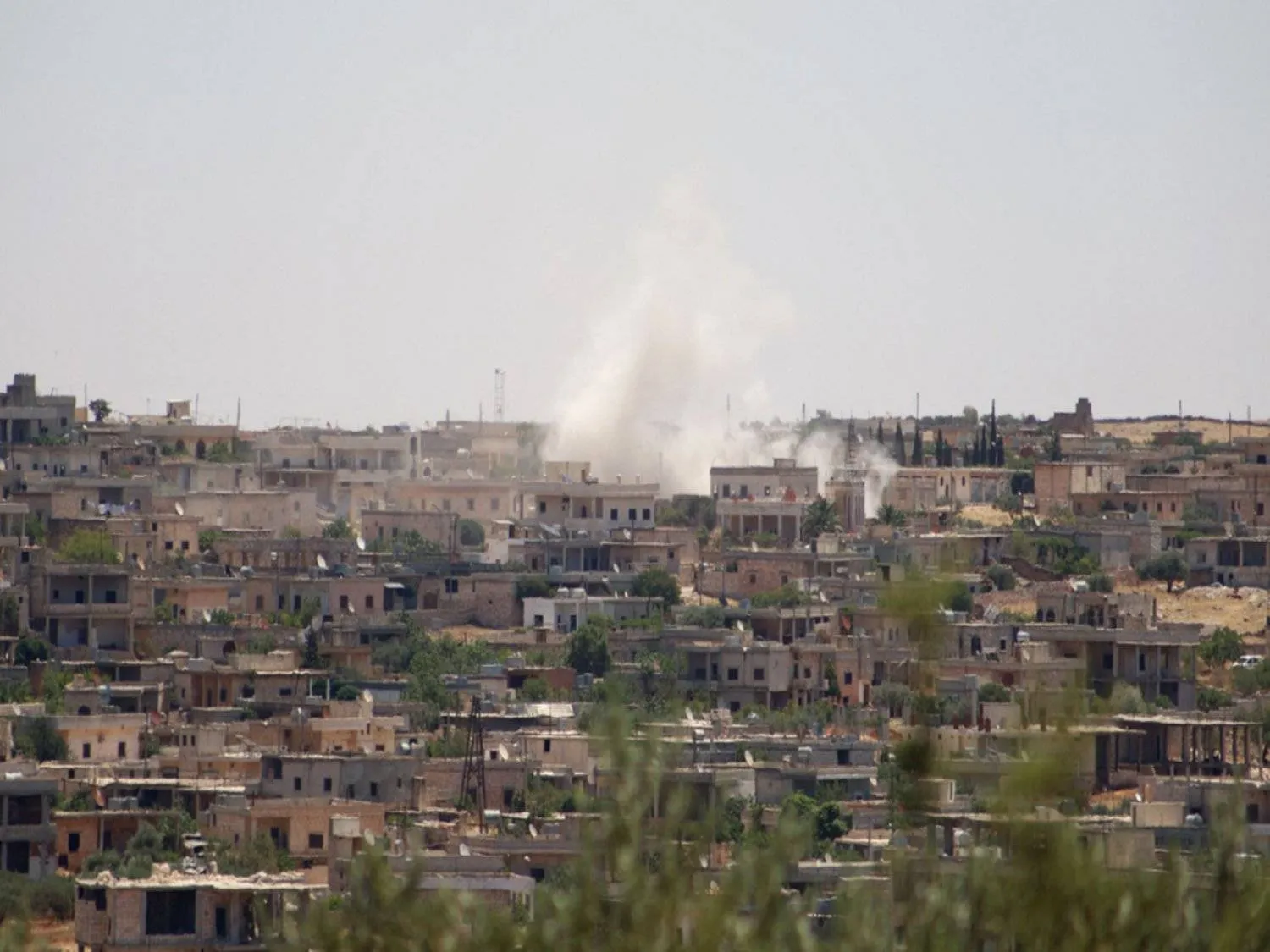A UN official said Thursday that he is “alarmed” by escalating violence in Syria’s opposition-held northwest in recent days, including airstrikes that hit near a food distribution site for displaced families and others that struck a power station and disabled water stations.
The UN deputy regional humanitarian coordinator for Syria, David Carden, said in a statement that 12 civilians, including children, had been killed since Monday and the increased violence has “halted critical humanitarian activities, including services provided by 10 health facilities.”
Syria’s uprising-turned-civil war, which began in 2011, has for years been a largely frozen conflict, the country effectively carved up into areas controlled by the Damascus government of President Bashar Assad, various opposition groups and Syrian Kurdish forces.
The opposition-held northwest has remained a flashpoint. In recent weeks, rescue workers and a war monitor said that Russian forces allied with Assad have stepped up bombardment of the area.
On Wednesday alone, the Syrian Observatory for Human Rights, a UK-based war monitor, said Russian warplanes launched 28 airstrikes in the countryside around Idlib and Latakia , targeting both civilian and military areas.
Some of the Russian strikes targeted sites of Hayat Tahrir al-Sham, or HTS, which controls much of northwest Syria. Formerly known as the Nusra Front, the Syrian branch of al-Qaeda, the group later changed its name several times and distanced itself from al-Qaeda.
Both sides have engaged in drone attacks and shelling, the observatory said.
Other strikes have hit civilians. A strike on a furniture manufacturing workshop on the outskirts of the city of Idlib Wednesday killed 10 people and injured 32, many of them workers, the local civil defense, also known as the White Helmets, said in a statement.
The group said rescue workers spent seven hours in a grueling rescue operation, pulling survivors from the rubble. Eight teams worked to treat the injured and recover victims, it said in a statement on Thursday.
The escalation comes at a time when a stream of people are arriving in northwest Syria after fleeing the escalating Israeli bombardment in neighboring Lebanon. Carden said Monday that approximately 3,000 newly displaced Syrians had arrived in northwest Syria from Lebanon.
Violence Spikes in Syria's Opposition-Held Northwest, Killing Civilians and Striking Infrastructure

File photo: Smoke billows following reported bombardment by government forces in the Syrian northwestern town of Barah, in the Jabal al-Zawiya region. (AFP)

Violence Spikes in Syria's Opposition-Held Northwest, Killing Civilians and Striking Infrastructure

File photo: Smoke billows following reported bombardment by government forces in the Syrian northwestern town of Barah, in the Jabal al-Zawiya region. (AFP)
لم تشترك بعد
انشئ حساباً خاصاً بك لتحصل على أخبار مخصصة لك ولتتمتع بخاصية حفظ المقالات وتتلقى نشراتنا البريدية المتنوعة







